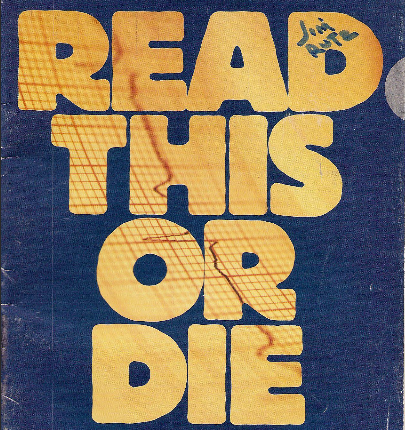Yesterday we talked about turning your prospects into paying customers by making crazy offers. Did this concept haunt you the way it’s been haunting me? I hope you spent a good deal of time coming up with an almost too-good-to-be-true offer you can use to move potential clients from interest into action.
Ideally, you will come up with an offer so crazy, so compelling that you don’t need much sales copy (or pitching if you’re selling in person or over the phone). Start with a winning product or service and create a very valuable offer and you’re already most of the way there. Now the copy has an easy job. (Confidentially, this is one of the big reasons copywriters are picky about which projects they work on.)
But no matter how strong your offer is, you should still…
…Sell the Heck Out of It Anyway
Even though making the right offer to the right prospect is 80% of the battle, persuasively-written sales copy can improve response by 10, 100 or 1000%.
Here are 4 qualities that will add extra oomph to your copy:
Identification
Your message should aim for the heart of who your target customer is and how he sees himself.
Nike could talk about comfort, but their customers are athletes concerned with performance, so that’s what their marketing highlights. Lexus could talk about performance, but Lexus buyers are thinking about status. That’s what they showcase in their ads.
What causes one person’s heart to race may not excite the next person at all. Know your customers. Write copy that appeals to their sense of who they are and who they want to be.
Clarity/Specificity
Don’t be the least bit vague about what you’re offering. Tell them exactly what they’ll get, how long it’s available for, how they’ll benefit from their purchase, what to expect next, etc. Clarity creates vision; without vision there is no action. On the other hand, confused people generally don’t buy.
Bold Claims
The idea of under-promising and over-delivering seems to make sense, but it can be suicidal when it comes to marketing. These days, with so many sales messages begging for our attention, you can’t afford to be shy.
Don’t be afraid to make big claims, as long as you can back them up.
People are searching for the best answers to their questions, the best solutions to their problems. Imagine a dentist who marketed his services as getting your teeth “pretty clean.” How long will he be in business? Even if he’s the best dentist in town, marketing like that will ruin him.
Sincerity
Skepticism is at an all-time high. So is the volume of hype-filled sales pitches we see and hear every day. People are looking for providers they can trust. Any hint of dishonesty or shadiness will send most potential buyers running.
Sincerity is like a breath of fresh air. Almost no one is using it.
The less you seem to hype up what you’re doing, the more believable you are. You come across as honest and helpful instead of desperate and opportunistic.
Your Action Steps
1) If you haven’t come up with it yet, keep working on your crazy offer.
2) Write the first draft of your sales copy ASAP.
3) Test out your offer. Don’t be scared.
If I’ve ever shared anything on this blog that I think you should act on right away, this is it. Don’t let another day go by without considering the immediate and long-term effects this “crazy offer” concept can have on your business.
And get moving!






